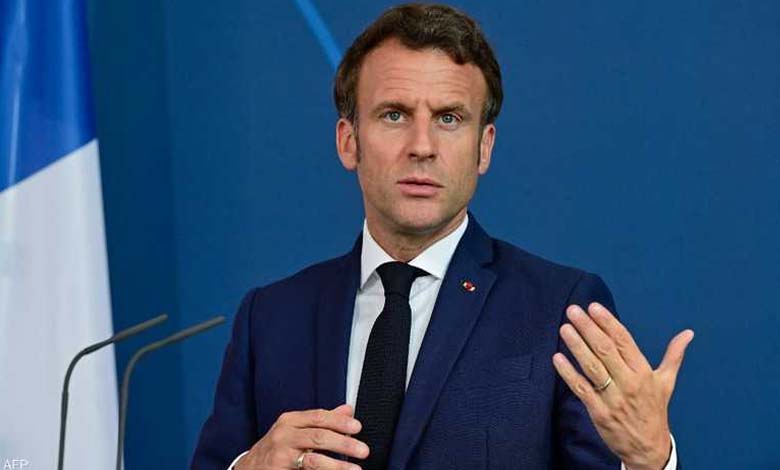After the Bayrou bomb… three scenarios on Macron’s desk

France is facing political and financial turmoil following Prime Minister François Bayrou’s failure to reduce the budget deficit, leaving three scenarios open for consideration.
Early signs suggest that Bayrou’s gamble of calling a vote of confidence may backfire, with his fragile government likely to collapse next month. Such a development would deepen the crisis confronting President Emmanuel Macron in his effort to manage the country.
-
Report on the Brotherhood threat sparks divisions within the French government and reveals Macron’s plan to counter the group
-
The ‘La France Insoumise’ party rallies to impeach Macron
Last Monday, Bayrou challenged his opponents, stressing the need to curb France’s massive deficit. He summoned Parliament for an extraordinary session on September 8 to vote on confidence in his government.
The reaction was swift. The far-left party La France Insoumise announced it would seek to topple him. The center-left Socialists, long frustrated with Bayrou, expressed the same intention. Even the far-right National Rally, led by Marine Le Pen, appears ready to turn against him, according to Politico.
-
The Election Chaos Did Not Affect Macron’s Visit Program to Morocco
-
« Brigitte, a Free Woman »: Flashback on Macron’s Love Affair
Bayrou’s camp was caught off guard by the RN’s move. A close aide to the Prime Minister told Politico that they believed Le Pen would rather “let Bayrou do the dirty work” of balancing the budget. Bayrou had previously survived several no-confidence votes thanks to abstentions by both the Socialists and the National Rally. With this lifeline gone, his chances of survival are now minimal — unless an unlikely shift occurs among his rivals.
If Bayrou’s government falls, Macron will have to decide on the next step. Three main scenarios lie ahead:
-
Macron shouts in the face of “cowards”.. and Europeans seek a path “without America”
-
After Macron… French media changes its stance on the Gaza war… Details
1. Appointing a new Prime Minister
Since the snap elections last summer, the National Assembly has been split into three nearly equal blocs: a left-wing alliance, a centrist-conservative coalition, and the far right.
Bayrou would be the second Prime Minister ousted since the vote, following Michel Barnier, who was removed after only three months in office. Appointing yet another centrist or center-right Prime Minister may seem repetitive, even reckless, but Macron may have no alternative if he wants to safeguard his legacy before the 2027 presidential election.
Defense Minister Sébastien Lecornu, a 39-year-old close ally of Macron and a former member of the conservative Republicans, is widely mentioned as a contender. He is viewed as a skilled politician able to engage with the far right. Another possibility would be to reach out to moderate Socialists, such as former Prime Minister Bernard Cazeneuve, though this would require Macron to concede significant policy shifts, such as tax hikes or reopening pension reform talks.
-
Macron’s stance on the Gaza war fuels divisions within France
-
Diplomatic rebellion against Macron’s bias towards Israel… French ambassadors issue warnings
2. Calling new snap elections
Macron might take the gamble of dissolving Parliament and holding another election to break the deadlock. Yet this path is fraught with risk. The last dissolution triggered today’s political paralysis, and since the political landscape has hardly shifted since then, another vote would likely produce another hung parliament.
Until recently, Macron had insisted on keeping Bayrou in office, but growing voices are urging dissolution. Socialist figure Boris Vallaud suggested his party is preparing for fresh elections, while Marine Le Pen wrote on X that “only snap elections will allow the French to choose their future.”
-
‘Macron’s Child’… Will Gabriel Attal Inherit the Keys to the Élysée Palace?
-
Unrest in France… Continued arrests and Macron cancels an official visit
3. Resignation
Finally, some politicians, particularly from the extremes, are calling for Macron’s resignation — an echo of the demands voiced after last summer’s early elections. Jean-Luc Mélenchon has announced a symbolic motion to oust Macron, unlikely to pass but designed to increase political pressure.
Macron has flatly ruled out resigning. However, France’s future hinges on whether his government can deliver a 2026 budget that credibly reduces both the deficit and spending. For now, that goal remains elusive, leaving the president in a precarious position.
The mix of political instability and worsening public finances could easily turn into an explosive combination for Macron’s presidency, raising serious questions about the durability of his mandate.












